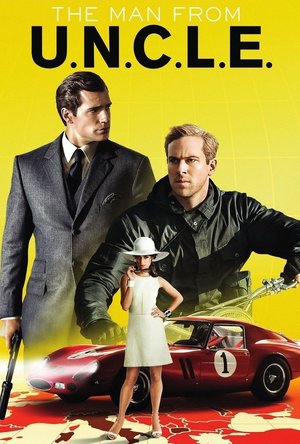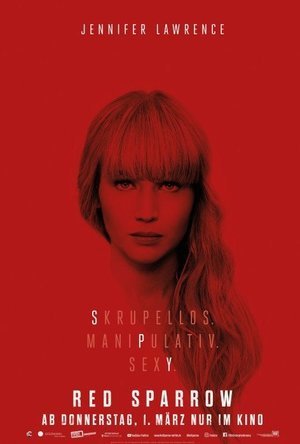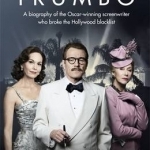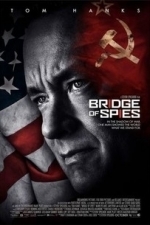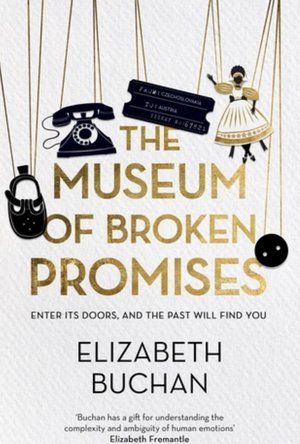Search
Gareth von Kallenbach (980 KP) rated The Man From U.N.C.L.E. (2015) in Movies
Aug 6, 2019
I have to admit, I knew nothing about The Man from U.N.C.L.E going into the movie, other than it was based on a TV show from the 60’s. It had flown under my radar for most of the year, overshadowed by highly-anticipated titles with colons, i.e., Avengers: Age of Ultron, Mad Max: Fury Road, Mission Impossible: Rogue Nation. When the screener was scheduled I was actually tempted to assign it to another reviewer. Then I watched the trailer and saw Henry Cavill (Superman) was one of the stars. At the risk of sounding shallow, that changed my mind.
As we waited for the movie to start, the Man from U.N.C.L.E soundtrack played through the theater’s sound system, transporting me to a Mad Men mindset, which helped as the movie backdrop is set in the early 1960’s period of the Cold War. We’re introduced first to Napoleon Solo, a CIA agent Cavill plays with amusing James Bond suave with an old-time movie accent. (Officially, I believe it’s called a Transatlantic accent.) He’s paired with Armie Hammer’s Illya Kuryakin, a KGB agent on a joint mission to stop a mysterious international criminal organization. To accomplish that, they need the cooperation of Gaby Teller (Alicia Vikander), the abandoned daughter of a German scientist, who is their key to infiltrating the criminal organization.
As you can guess, all the spy movie cliches can be found in Man from U.N.C.L.E. from the debonair womanizing agent, menacing foreigners, the femme fatale, the elaborate schemes that are executed smoothly, explanatory monologues, convenient gadgets, et al – just a vintage low tech, high glam version of spy movies you may have seen of late.
I’m actually glad I went in without any expectations. Guy Ritchie turned a pretty simple, straightforward plot into an intricate,, slightly off-kilter caper, with touches of his trademark storytelling from various perspectives. I enjoyed the subtle vying for supremacy the uneasy truce between Solo and Illya created, and while he’s not as dashing as Cavill, Hammer had great chemistry with Vikander.
This year has been quite the year for spy movies. U.N.C.L.E. is not the action thriller that Mission Impossible is, it’s also far from the campy shocker that Kingsmen was, nor is it as outrageously funny as Spy, but as spy movies go, U.N.C.L.E fits smoothly and oddly comfortably in that fold.
As we waited for the movie to start, the Man from U.N.C.L.E soundtrack played through the theater’s sound system, transporting me to a Mad Men mindset, which helped as the movie backdrop is set in the early 1960’s period of the Cold War. We’re introduced first to Napoleon Solo, a CIA agent Cavill plays with amusing James Bond suave with an old-time movie accent. (Officially, I believe it’s called a Transatlantic accent.) He’s paired with Armie Hammer’s Illya Kuryakin, a KGB agent on a joint mission to stop a mysterious international criminal organization. To accomplish that, they need the cooperation of Gaby Teller (Alicia Vikander), the abandoned daughter of a German scientist, who is their key to infiltrating the criminal organization.
As you can guess, all the spy movie cliches can be found in Man from U.N.C.L.E. from the debonair womanizing agent, menacing foreigners, the femme fatale, the elaborate schemes that are executed smoothly, explanatory monologues, convenient gadgets, et al – just a vintage low tech, high glam version of spy movies you may have seen of late.
I’m actually glad I went in without any expectations. Guy Ritchie turned a pretty simple, straightforward plot into an intricate,, slightly off-kilter caper, with touches of his trademark storytelling from various perspectives. I enjoyed the subtle vying for supremacy the uneasy truce between Solo and Illya created, and while he’s not as dashing as Cavill, Hammer had great chemistry with Vikander.
This year has been quite the year for spy movies. U.N.C.L.E. is not the action thriller that Mission Impossible is, it’s also far from the campy shocker that Kingsmen was, nor is it as outrageously funny as Spy, but as spy movies go, U.N.C.L.E fits smoothly and oddly comfortably in that fold.
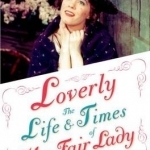
Loverly: The Life and Times of My Fair Lady
Book
Few musicals have had the impact of Lerner and Loewe's timeless classic My Fair Lady. Sitting in the...
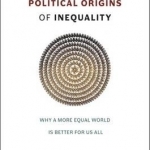
The Political Origins of Inequality: Why a More Equal World is Better for Us All
Book
Inequality is the defining issue of our time. But it is not just a problem for the rich world. It is...
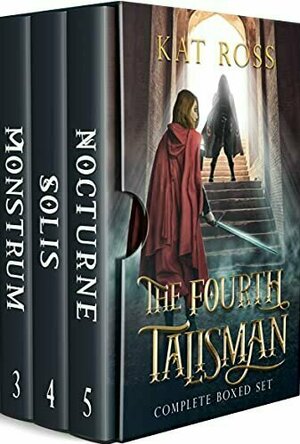
The Fourth Talisman
Book
Nocturne, a wilderness of eternal night. Solis, a wasteland of endless day. It’s been a...
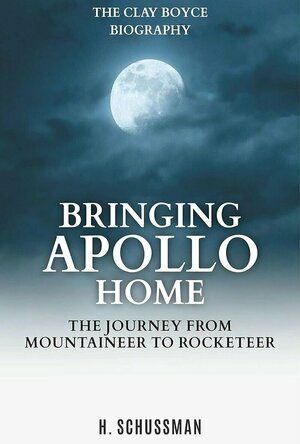
Bringing Apollo Home
Book
Like a lot of people, Clay Boyce led an interesting life. The difference is, he’s a natural...
Bob Mann (459 KP) rated Red Sparrow (2018) in Movies
Sep 29, 2021
Good Lord! How much sex and violence is acceptable for a UK-15 film?
I recognise that it’s a “thing” that I get into periodic ‘ruts’ of ranting about particular aspects of cinema. But it’s not spoilers in trailers this time! No, the most recent rut I’ve been in is concerned with the correctness or otherwise of the BBFC’s rating of UK 15-certificate films, which seems to have been the rating of every cinema film I’ve seen recently! In my view both “Phantom Thread” and “Lady Bird” should both have firmly been 12A’s to attract a broader teenage audience. But here’s a case on the other side of the balance.
“Red Sparrow”, the latest film from “Hunger Games” director Francis Lawrence, has Jennifer Lawrence (“Joy“, “mother!“) as Dominika Egorova, a Russian ballerina, who after a horrific accident (cringe) is forced to serve the State in order to keep her mother (Joely Richardson, “101 Dalmations”) in their Bolshoi-funded apartment and with the necessary medical treatment. She is sent to a spy “whore school”, ruled over by “matron” (Charlotte Rampling), to learn how to use sexual and psychological means to ‘get in the pants’ (and therefore the minds) of foreign targets.
Always elegant. Charlotte Rampling back on our screens as “Matron”.
And she turns out to be very good and – without nepotism of course, given that her creepy uncle Egorov ( Matthias Schoenaerts, “Far From The Madding Crowd“) is high up in the special services – she is sent on a mission to Budapest to try to uncover a high profile mole, who’s CIA handler is Nate Nash (Joel Edgerton, “The Great Gatsby“, “Black Mass“). Supervising Egorov’s operation are his two line managers General Korchnoi (Jeremy Irons, “Batman v Superman: Dawn of Justice“) and Zakharov (Ciarán Hinds, “Harry Potter”). Sucked into a web of intrigue, Dominika needs to use all her skills and charms to complete her mission… which equates to keeping herself and her mother alive.
Now on the tarmac, Joel really wans’t looking forward to his Ryanair flight.
This is an extremely uneven film. In places it is quite brilliant, particularly the twist in the ending which leaves you thinking (like “Life“) that the film is actually better than it was. In fact – subject to a couple of severe reservations discussed below – the script by Justin Haythe (“A Cure for Wellness“) and based on a book by Jason Matthews, is quite sharp. But – man – in its direction the film seriously takes its time. In my book, a film needs to have a pretty good reason to extend its stay past 2 hours, and this outstays its welcome by an extra 20 minutes. Many of the scenes are protracted – leisurely walks across streets etc. – for no particularly good reason.
Pwoaahh – look at those. (I’m referring of course to Joel Edgerton’s buns in those speedos).
And so to those major reservations: the sex and the violence.
I’m no prude when it comes to sex, but some of the scenes in the ‘whore school’ left me feeling like this was less about a “Times Up” initiative of empowering women and more about providing an array of sordid titillation on the screen that just help entrench mysoginistic views about women. (Did anyone else hear Kenneth Williams saying “Oooooh, matron” to Charlotte Rampling’s character?) There were men and women attending this training camp, but did we see – later in the film – any of the men subjecting themselves to sexual humiliation or subjugation in the field: no, we did not. I love a really good erotic film… but this just left me feeling dirty and used.
Who wants to go to the f***ing party? No one seems to have remembered to bring a bottle.
And then there’s the violence. I’m definitely not a fan of the sort of violent-porn of the “Saw” type of films, but heavens – if there was a reason to make this an 18 certificate it was the violence involved. Violent rape, a vicious revenge attack, extreme torture, skinning alive: was there nothing in here that the censors thought, “hang on a minute, perhaps I don’t want a 15 year old seeing this”. I have seldom seen and heard more flinching and whimpering from women in a cinema audience than during this film. If you are adversely affected by screen violence, this is really one best to avoid.
“The Cold War hasn’t ended – it has splintered into thousands of dangerous pieces” intones the matron. Similarly, this film has potential but splinters into many pieces, some good but far more sharp and dangerous. With similarities in tone and content to “Atomic Blonde“, there’s a good ‘post cold war’ spy film in here trying to get out. Unfortunately, it never quite gets both legs over the wall.
“Red Sparrow”, the latest film from “Hunger Games” director Francis Lawrence, has Jennifer Lawrence (“Joy“, “mother!“) as Dominika Egorova, a Russian ballerina, who after a horrific accident (cringe) is forced to serve the State in order to keep her mother (Joely Richardson, “101 Dalmations”) in their Bolshoi-funded apartment and with the necessary medical treatment. She is sent to a spy “whore school”, ruled over by “matron” (Charlotte Rampling), to learn how to use sexual and psychological means to ‘get in the pants’ (and therefore the minds) of foreign targets.
Always elegant. Charlotte Rampling back on our screens as “Matron”.
And she turns out to be very good and – without nepotism of course, given that her creepy uncle Egorov ( Matthias Schoenaerts, “Far From The Madding Crowd“) is high up in the special services – she is sent on a mission to Budapest to try to uncover a high profile mole, who’s CIA handler is Nate Nash (Joel Edgerton, “The Great Gatsby“, “Black Mass“). Supervising Egorov’s operation are his two line managers General Korchnoi (Jeremy Irons, “Batman v Superman: Dawn of Justice“) and Zakharov (Ciarán Hinds, “Harry Potter”). Sucked into a web of intrigue, Dominika needs to use all her skills and charms to complete her mission… which equates to keeping herself and her mother alive.
Now on the tarmac, Joel really wans’t looking forward to his Ryanair flight.
This is an extremely uneven film. In places it is quite brilliant, particularly the twist in the ending which leaves you thinking (like “Life“) that the film is actually better than it was. In fact – subject to a couple of severe reservations discussed below – the script by Justin Haythe (“A Cure for Wellness“) and based on a book by Jason Matthews, is quite sharp. But – man – in its direction the film seriously takes its time. In my book, a film needs to have a pretty good reason to extend its stay past 2 hours, and this outstays its welcome by an extra 20 minutes. Many of the scenes are protracted – leisurely walks across streets etc. – for no particularly good reason.
Pwoaahh – look at those. (I’m referring of course to Joel Edgerton’s buns in those speedos).
And so to those major reservations: the sex and the violence.
I’m no prude when it comes to sex, but some of the scenes in the ‘whore school’ left me feeling like this was less about a “Times Up” initiative of empowering women and more about providing an array of sordid titillation on the screen that just help entrench mysoginistic views about women. (Did anyone else hear Kenneth Williams saying “Oooooh, matron” to Charlotte Rampling’s character?) There were men and women attending this training camp, but did we see – later in the film – any of the men subjecting themselves to sexual humiliation or subjugation in the field: no, we did not. I love a really good erotic film… but this just left me feeling dirty and used.
Who wants to go to the f***ing party? No one seems to have remembered to bring a bottle.
And then there’s the violence. I’m definitely not a fan of the sort of violent-porn of the “Saw” type of films, but heavens – if there was a reason to make this an 18 certificate it was the violence involved. Violent rape, a vicious revenge attack, extreme torture, skinning alive: was there nothing in here that the censors thought, “hang on a minute, perhaps I don’t want a 15 year old seeing this”. I have seldom seen and heard more flinching and whimpering from women in a cinema audience than during this film. If you are adversely affected by screen violence, this is really one best to avoid.
“The Cold War hasn’t ended – it has splintered into thousands of dangerous pieces” intones the matron. Similarly, this film has potential but splinters into many pieces, some good but far more sharp and dangerous. With similarities in tone and content to “Atomic Blonde“, there’s a good ‘post cold war’ spy film in here trying to get out. Unfortunately, it never quite gets both legs over the wall.
Film tie-in
I received this book for free through Goodreads First Reads.
Nominated for an Oscar, BAFTA and Golden Globe,Trumbo is a recent film based on the original biography Dalton Trumbo written by Bruce Cook in 1977. Its adaptation to film provided the perfect opportunity to republish this extremely well researched book. With a forward written by John McNamara, the screenwriter of the motion picture, the story of Dalton Trumbo’s life is just as intriguing as it was almost forty years ago. But who is Trumbo?
If, like me, you have never heard of Trumbo or even the infamous “Hollywood Ten,” it may take a while for it to become clear as to why it was worth Cook’s time to produce a book about the man. Dalton Trumbo was a well-known screenwriter of films such as Papillon, Lonely Are The Brave and Roman Holiday as well as author of the novel Johnny Got His Gun. However these are not all he is famous for. During his life, Trumbo became a member of the Communist Party, which Hollywood branded as an Un-American Activity and thus blacklisted him, as well as other screenwriters, directors and actors. Ten of these men, Trumbo included, were imprisoned for their political beliefs – yet nothing prevented Trumbo from continuing his fairly successful career.
Interestingly, Cook begins the book with the final stages of Trumbo’s life. At time of writing Trumbo was still alive, although rather poorly. After contracting lung cancer, having a lung removed, and suffering a heart attack, Trumbo was a very sick man; nonetheless he was still enthusiastic about being interviewed and telling his personal story.
From his childhood, to his evening shifts at a bakery, Cook details Trumbo’s early life, emphasizing the hard upbringing he had before he found himself in the world of Hollywood. Although roughly 75% of the book focuses on Trumbo’s career, Cook highlights Trumbo as a family man, with both a wife and three children who he absolutely adores.
Cook constantly refers to the Hollywood Ten as a concept that the reader should already be familiar with. Granted, someone who picks up this book is more likely to do so having a prior interest in the central figure, and thus already know about his background; however those ignorant on the topic eventually gather a better understanding on the topic once reaching the relevant chapters. It also becomes clearer why Trumbo is worth reading/writing about – he may have been blacklisted, but he managed to break through all the barriers and reinstate his name and many others.
Reading this half a century after the event, it seems strange that Trumbo was imprisoned. He had not done anything intrinsically wrong, it was purely prejudice against his political beliefs that got him into the mess he found himself. But when you consider the events of the time: World War Two, the Cold War, the Korean War, and Vietnam; it is understandable why many feared those who claimed to be Communists.
Cook’s narrative does not flow as a story, and much of it is broken up with quotes from various people he interviewed. The timeline jumps about between past and present (1970s), which occasionally gets a bit confusing. A large part of the book is spent analyzing many of Trumbo’s works – both for screen and written formats – which, unless you have a particular interest, can be a little tedious.
It has got to be said that Bruce Cook was an exemplary writer with a great eye for detail. He did not jump to conclusions or only talk about things from his point of view. Instead he interviewed, what seems like, everyone who ever met Trumbo, and based his writing on fact backed up with numerous quotes and citations.
This edition of Trumbo contains a selection of photographs taken on the set of the movie. Disappointingly it does not contain any of Trumbo himself – you would think that some photos could have been tracked down!
Trumbo is not a book that will interest everyone. Most people today – particularly in England – will probably be unaware of who Dalton Trumbo was, and thus would only seek out this publication due to a fascination with film production. I have not seen the film, but after reading this and discovering how books go from novels, to screenplays to moving image, it would be interesting to find out which parts of Trumbo’s life made it onto the big screen.
Nominated for an Oscar, BAFTA and Golden Globe,Trumbo is a recent film based on the original biography Dalton Trumbo written by Bruce Cook in 1977. Its adaptation to film provided the perfect opportunity to republish this extremely well researched book. With a forward written by John McNamara, the screenwriter of the motion picture, the story of Dalton Trumbo’s life is just as intriguing as it was almost forty years ago. But who is Trumbo?
If, like me, you have never heard of Trumbo or even the infamous “Hollywood Ten,” it may take a while for it to become clear as to why it was worth Cook’s time to produce a book about the man. Dalton Trumbo was a well-known screenwriter of films such as Papillon, Lonely Are The Brave and Roman Holiday as well as author of the novel Johnny Got His Gun. However these are not all he is famous for. During his life, Trumbo became a member of the Communist Party, which Hollywood branded as an Un-American Activity and thus blacklisted him, as well as other screenwriters, directors and actors. Ten of these men, Trumbo included, were imprisoned for their political beliefs – yet nothing prevented Trumbo from continuing his fairly successful career.
Interestingly, Cook begins the book with the final stages of Trumbo’s life. At time of writing Trumbo was still alive, although rather poorly. After contracting lung cancer, having a lung removed, and suffering a heart attack, Trumbo was a very sick man; nonetheless he was still enthusiastic about being interviewed and telling his personal story.
From his childhood, to his evening shifts at a bakery, Cook details Trumbo’s early life, emphasizing the hard upbringing he had before he found himself in the world of Hollywood. Although roughly 75% of the book focuses on Trumbo’s career, Cook highlights Trumbo as a family man, with both a wife and three children who he absolutely adores.
Cook constantly refers to the Hollywood Ten as a concept that the reader should already be familiar with. Granted, someone who picks up this book is more likely to do so having a prior interest in the central figure, and thus already know about his background; however those ignorant on the topic eventually gather a better understanding on the topic once reaching the relevant chapters. It also becomes clearer why Trumbo is worth reading/writing about – he may have been blacklisted, but he managed to break through all the barriers and reinstate his name and many others.
Reading this half a century after the event, it seems strange that Trumbo was imprisoned. He had not done anything intrinsically wrong, it was purely prejudice against his political beliefs that got him into the mess he found himself. But when you consider the events of the time: World War Two, the Cold War, the Korean War, and Vietnam; it is understandable why many feared those who claimed to be Communists.
Cook’s narrative does not flow as a story, and much of it is broken up with quotes from various people he interviewed. The timeline jumps about between past and present (1970s), which occasionally gets a bit confusing. A large part of the book is spent analyzing many of Trumbo’s works – both for screen and written formats – which, unless you have a particular interest, can be a little tedious.
It has got to be said that Bruce Cook was an exemplary writer with a great eye for detail. He did not jump to conclusions or only talk about things from his point of view. Instead he interviewed, what seems like, everyone who ever met Trumbo, and based his writing on fact backed up with numerous quotes and citations.
This edition of Trumbo contains a selection of photographs taken on the set of the movie. Disappointingly it does not contain any of Trumbo himself – you would think that some photos could have been tracked down!
Trumbo is not a book that will interest everyone. Most people today – particularly in England – will probably be unaware of who Dalton Trumbo was, and thus would only seek out this publication due to a fascination with film production. I have not seen the film, but after reading this and discovering how books go from novels, to screenplays to moving image, it would be interesting to find out which parts of Trumbo’s life made it onto the big screen.
My rating: 3.5
<i>I received this book for free through Goodreads First Reads.</i>
Nominated for an Oscar, BAFTA and Golden Globe, <i>Trumbo</i> is a recent film based on the original biography <i>Dalton Trumbo</i> written by Bruce Cook in 1977. Its adaptation to film provided the perfect opportunity to republish this extremely well researched book. With a forward written by John McNamara, the screenwriter of the motion picture, the story of Dalton Trumbo’s life is just as intriguing as it was almost forty years ago. But who is Trumbo?
If, like me, you have never heard of Trumbo or even the infamous “Hollywood Ten,” it may take a while for it to become clear as to why it was worth Cook’s time to produce a book about the man. Dalton Trumbo was a well-known screenwriter of films such as <i>Papillon, Lonely Are The Brave</i> and <i>Roman Holiday</i> as well as author of the novel <i>Johnny Got His Gun</i>. However these are not all he is famous for. During his life, Trumbo became a member of the Communist Party, which Hollywood branded as an Un-American Activity and thus blacklisted him, as well as other screenwriters, directors and actors. Ten of these men, Trumbo included, were imprisoned for their political beliefs – yet nothing prevented Trumbo from continuing his fairly successful career.
Interestingly, Cook begins the book with the final stages of Trumbo’s life. At time of writing Trumbo was still alive, although rather poorly. After contracting lung cancer, having a lung removed, and suffering a heart attack, Trumbo was a very sick man; nonetheless he was still enthusiastic about being interviewed and telling his personal story.
From his childhood, to his evening shifts at a bakery, Cook details Trumbo’s early life, emphasizing the hard upbringing he had before he found himself in the world of Hollywood. Although roughly 75% of the book focuses on Trumbo’s career, Cook highlights Trumbo as a family man, with both a wife and three children who he absolutely adores.
Cook constantly refers to the Hollywood Ten as a concept that the reader should already be familiar with. Granted, someone who picks up this book is more likely to do so having a prior interest in the central figure, and thus already know about his background; however those ignorant on the topic eventually gather a better understanding on the topic once reaching the relevant chapters. It also becomes clearer why Trumbo is worth reading/writing about – he may have been blacklisted, but he managed to break through all the barriers and reinstate his name and many others.
Reading this half a century after the event, it seems strange that Trumbo was imprisoned. He had not done anything intrinsically wrong, it was purely prejudice against his political beliefs that got him into the mess he found himself. But when you consider the events of the time: World War Two, the Cold War, the Korean War, and Vietnam; it is understandable why many feared those who claimed to be Communists.
Cook’s narrative does not flow as a story, and much of it is broken up with quotes from various people he interviewed. The timeline jumps about between past and present (1970s), which occasionally gets a bit confusing. A large part of the book is spent analyzing many of Trumbo’s works – both for screen and written formats – which, unless you have a particular interest, can be a little tedious.
It has got to be said that Bruce Cook was an exemplary writer with a great eye for detail. He did not jump to conclusions or only talk about things from his point of view. Instead he interviewed, what seems like, everyone who ever met Trumbo, and based his writing on fact backed up with numerous quotes and citations.
This edition of <i>Trumbo</i> contains a selection of photographs taken on the set of the movie. Disappointingly it does not contain any of Trumbo himself – you would think that some photos could have been tracked down!
<i>Trumbo</i> is not a book that will interest everyone. Most people today – particularly in England – will probably be unaware of who Dalton Trumbo was, and thus would only seek out this publication due to a fascination with film production. I have not seen the film, but after reading this and discovering how books go from novels, to screenplays to moving image, it would be interesting to find out which parts of Trumbo’s life made it onto the big screen.
<i>I received this book for free through Goodreads First Reads.</i>
Nominated for an Oscar, BAFTA and Golden Globe, <i>Trumbo</i> is a recent film based on the original biography <i>Dalton Trumbo</i> written by Bruce Cook in 1977. Its adaptation to film provided the perfect opportunity to republish this extremely well researched book. With a forward written by John McNamara, the screenwriter of the motion picture, the story of Dalton Trumbo’s life is just as intriguing as it was almost forty years ago. But who is Trumbo?
If, like me, you have never heard of Trumbo or even the infamous “Hollywood Ten,” it may take a while for it to become clear as to why it was worth Cook’s time to produce a book about the man. Dalton Trumbo was a well-known screenwriter of films such as <i>Papillon, Lonely Are The Brave</i> and <i>Roman Holiday</i> as well as author of the novel <i>Johnny Got His Gun</i>. However these are not all he is famous for. During his life, Trumbo became a member of the Communist Party, which Hollywood branded as an Un-American Activity and thus blacklisted him, as well as other screenwriters, directors and actors. Ten of these men, Trumbo included, were imprisoned for their political beliefs – yet nothing prevented Trumbo from continuing his fairly successful career.
Interestingly, Cook begins the book with the final stages of Trumbo’s life. At time of writing Trumbo was still alive, although rather poorly. After contracting lung cancer, having a lung removed, and suffering a heart attack, Trumbo was a very sick man; nonetheless he was still enthusiastic about being interviewed and telling his personal story.
From his childhood, to his evening shifts at a bakery, Cook details Trumbo’s early life, emphasizing the hard upbringing he had before he found himself in the world of Hollywood. Although roughly 75% of the book focuses on Trumbo’s career, Cook highlights Trumbo as a family man, with both a wife and three children who he absolutely adores.
Cook constantly refers to the Hollywood Ten as a concept that the reader should already be familiar with. Granted, someone who picks up this book is more likely to do so having a prior interest in the central figure, and thus already know about his background; however those ignorant on the topic eventually gather a better understanding on the topic once reaching the relevant chapters. It also becomes clearer why Trumbo is worth reading/writing about – he may have been blacklisted, but he managed to break through all the barriers and reinstate his name and many others.
Reading this half a century after the event, it seems strange that Trumbo was imprisoned. He had not done anything intrinsically wrong, it was purely prejudice against his political beliefs that got him into the mess he found himself. But when you consider the events of the time: World War Two, the Cold War, the Korean War, and Vietnam; it is understandable why many feared those who claimed to be Communists.
Cook’s narrative does not flow as a story, and much of it is broken up with quotes from various people he interviewed. The timeline jumps about between past and present (1970s), which occasionally gets a bit confusing. A large part of the book is spent analyzing many of Trumbo’s works – both for screen and written formats – which, unless you have a particular interest, can be a little tedious.
It has got to be said that Bruce Cook was an exemplary writer with a great eye for detail. He did not jump to conclusions or only talk about things from his point of view. Instead he interviewed, what seems like, everyone who ever met Trumbo, and based his writing on fact backed up with numerous quotes and citations.
This edition of <i>Trumbo</i> contains a selection of photographs taken on the set of the movie. Disappointingly it does not contain any of Trumbo himself – you would think that some photos could have been tracked down!
<i>Trumbo</i> is not a book that will interest everyone. Most people today – particularly in England – will probably be unaware of who Dalton Trumbo was, and thus would only seek out this publication due to a fascination with film production. I have not seen the film, but after reading this and discovering how books go from novels, to screenplays to moving image, it would be interesting to find out which parts of Trumbo’s life made it onto the big screen.
Gareth von Kallenbach (980 KP) rated Bridge of Spies (2015) in Movies
Jun 19, 2019
In the 1950s the world was locked in the midst of the Cold War where paranoia, mutual distrust, and fear, combined with the threat of nuclear annihilation between the United States and Soviet Union. In “Bridge of Spies” Director Steven Spielberg has once again used history as a basis for a compelling story filled with real characters and emotions.
When suspected spy Rudolf Abel (Mark Rylance), is arrested New York Tax Attorney James Donovan (Tom Hanks) is asked to provide Abel with a competent defense so the United States can show the world that Abel was given a fair trial and due process despite the charges against him.
Although hesitant what defending an accused spy will bring hatred to him and his family, Donovan takes up the task and despite a judge and process that wants to railroad this to a conviction in spite of possible illegal search and seizure, Donovan is able to avoid the death penalty for his client and even files an appeal before the Supreme Court as he is convinced his client was convicted on evidence that was illegally obtained.
At the same time, a young Air Force pilot named Francis Gary Powers (Austin Stowell), is shot down by the Russians in a U-2 spy plane and is paraded by the Russians on television before being convicted of being a Spy.
This situation increases and already tense situation and when the East German government starts to build the Berlin Wall and takes an American student prisoner for espionage, back channels contact Donovan to discuss a possible exchange of prisoners.
Now since this cannot be done by any official sanction of the U.S. or Russian governments, Donovan must in secret travel to Berlin and meet with figures to obtain a release. The U.S. wants Powers and considers the student an expendable throw in but Donovan is resolute to bring them both home in exchange for his client Abel.
The film is beautifully shot and masterfully acted with top performance by Hanks and the leads. The events are fairly close to the historical accounts I studied as a child and Spielberg is wise to let the story and the characters drive the film and not create over impassioned speeches or tacked on action sequences to build the drama.
The film is an early contender for several Oscar nominations as far as I am concerned as is one of the best movies of 2015.
http://sknr.net/2015/10/16/bridge-of-spies/
When suspected spy Rudolf Abel (Mark Rylance), is arrested New York Tax Attorney James Donovan (Tom Hanks) is asked to provide Abel with a competent defense so the United States can show the world that Abel was given a fair trial and due process despite the charges against him.
Although hesitant what defending an accused spy will bring hatred to him and his family, Donovan takes up the task and despite a judge and process that wants to railroad this to a conviction in spite of possible illegal search and seizure, Donovan is able to avoid the death penalty for his client and even files an appeal before the Supreme Court as he is convinced his client was convicted on evidence that was illegally obtained.
At the same time, a young Air Force pilot named Francis Gary Powers (Austin Stowell), is shot down by the Russians in a U-2 spy plane and is paraded by the Russians on television before being convicted of being a Spy.
This situation increases and already tense situation and when the East German government starts to build the Berlin Wall and takes an American student prisoner for espionage, back channels contact Donovan to discuss a possible exchange of prisoners.
Now since this cannot be done by any official sanction of the U.S. or Russian governments, Donovan must in secret travel to Berlin and meet with figures to obtain a release. The U.S. wants Powers and considers the student an expendable throw in but Donovan is resolute to bring them both home in exchange for his client Abel.
The film is beautifully shot and masterfully acted with top performance by Hanks and the leads. The events are fairly close to the historical accounts I studied as a child and Spielberg is wise to let the story and the characters drive the film and not create over impassioned speeches or tacked on action sequences to build the drama.
The film is an early contender for several Oscar nominations as far as I am concerned as is one of the best movies of 2015.
http://sknr.net/2015/10/16/bridge-of-spies/
Ivana A. | Diary of Difference (1171 KP) rated The Museum of Broken Promises in Books
Apr 20, 2020
I am so excited to be part of the Book Buzz for The Museum of Broken Promises by Elizabeth Buchan. This lovely book is out on 02nd April, so don’t forget to grab your copy!
This book is quite emotional and heart-breaking from the very beginning until the very end. Based in Europe, in two timelines between now and 1985, we are witnesses to cold war, politics, fight for freedom and an extraordinary love story.
Today, Laure is living in Paris and she owns The Museum of Broken Promises - a place of wonder and sadness. Every object in the museum has been donated and each represents a moment of grief or terrible betrayal. Laure also has hidden objects of her own in there, from her own youth.
Back in 1985, Laure is in Prague, running away after her dad suddenly passes away. But her life here is very confusing. She is struggling to comprehend the dark politics that are taking over the city. But then she meets a young musician. And her love for him is forbidden and causes trouble and terrible consequences.
It is only years after having created the museum that Laure can finally come to terms with her past and celebrate the love she is feeling!
My Thoughts:
This is a very emotional book and I have learned that I need to be in a certain mood in order to be able to fully appreciate it. This is one of those books that leaves a tiny mark in your heart that you will always carry with you.
The story is amazing, we are witnessing a great life full of memories and stories of love, fight for freedom, betrayals, fears, ups and downs. It is so realistic that will make you shiver at times.
I have to admit, I found myself slightly confused at the beginning, trying to figure out which timeline I am currently in, but after a few chapters, I am able to make a difference and get a clearer picture of the story.
I loved the idea of this Museum of Broken Promises. It made me think of what object I could maybe leave there to represent my grief.
I have to admit, I didn’t truly connect with Laure as a main character. She seemed too closed in her own world and her sharing her story in the way that she did was very contradicting to me.
I loved Tomas though. He was my absolute favourite, the hero of this book.
This book is quite emotional and heart-breaking from the very beginning until the very end. Based in Europe, in two timelines between now and 1985, we are witnesses to cold war, politics, fight for freedom and an extraordinary love story.
Today, Laure is living in Paris and she owns The Museum of Broken Promises - a place of wonder and sadness. Every object in the museum has been donated and each represents a moment of grief or terrible betrayal. Laure also has hidden objects of her own in there, from her own youth.
Back in 1985, Laure is in Prague, running away after her dad suddenly passes away. But her life here is very confusing. She is struggling to comprehend the dark politics that are taking over the city. But then she meets a young musician. And her love for him is forbidden and causes trouble and terrible consequences.
It is only years after having created the museum that Laure can finally come to terms with her past and celebrate the love she is feeling!
My Thoughts:
This is a very emotional book and I have learned that I need to be in a certain mood in order to be able to fully appreciate it. This is one of those books that leaves a tiny mark in your heart that you will always carry with you.
The story is amazing, we are witnessing a great life full of memories and stories of love, fight for freedom, betrayals, fears, ups and downs. It is so realistic that will make you shiver at times.
I have to admit, I found myself slightly confused at the beginning, trying to figure out which timeline I am currently in, but after a few chapters, I am able to make a difference and get a clearer picture of the story.
I loved the idea of this Museum of Broken Promises. It made me think of what object I could maybe leave there to represent my grief.
I have to admit, I didn’t truly connect with Laure as a main character. She seemed too closed in her own world and her sharing her story in the way that she did was very contradicting to me.
I loved Tomas though. He was my absolute favourite, the hero of this book.
